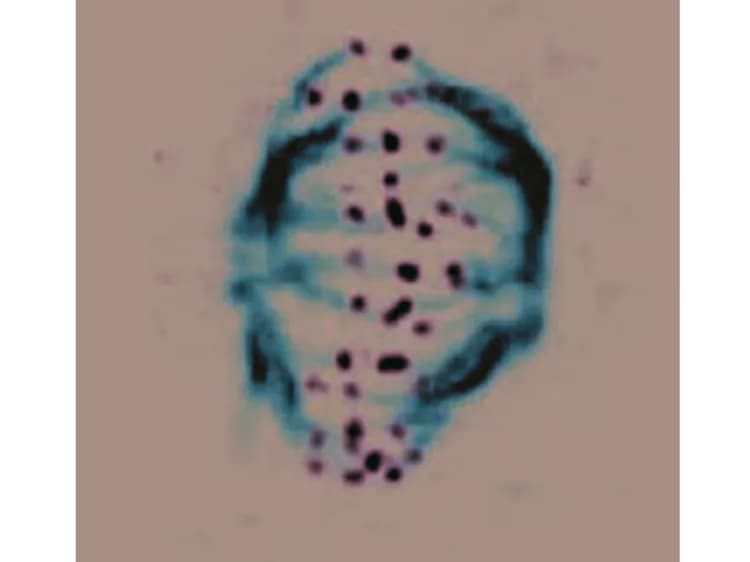
Unexpected Finding Links Cell Division, Glucose, And Insulin
Proteins that play key roles in the timing of cell division also moonlight in regulating blood sugar levels, UT Southwestern Medical Center researchers have found.
"The main framework of insulin signaling has been known for decades, and no new major regulators have been found in recent years. Defying the odds, we identified a major, new regulatory mechanism of this important cell signaling pathway," said study senior author Dr. Hongtao Yu, Professor of Pharmacology at UT Southwestern and an Investigator with the Howard Hughes Medical Institute (HHMI).
The study, published online today in Cell, found that three "spindle checkpoint" proteins long associated with the timing of cell division are central to the newly identified mechanism that regulates insulin signaling, said Dr. Yu, who holds The Serena S. Simmons Distinguished Chair in Cancer Immunopharmacology and is a Michael L. Rosenberg Scholar in Medical Research.
The World Health Organization estimates that diabetes -- a metabolic disease of major public health concern -- affects more than 400 million people worldwide. The condition disrupts the body's ability to keep blood sugar (glucose) in balance. Over time, high blood-sugar levels can damage nerves and blood vessels throughout the body.
There are two major forms of diabetes. In Type 1 diabetes, the pancreas is unable to produce insulin. In Type 2 diabetes, the body produces insulin but is unable to respond to it, a condition called insulin resistance, said Dr. Eunhee Choi, a research scientist in the Yu laboratory and lead author of the study.
It has long been known that insulin sends signals from the outside to the inside of the cell via insulin receptors located on the cell surface. The receptors have two "arms" that extend outside the cell and two "arms" that reach into the cell's interior, Dr. Choi said.
Under normal conditions, insulin is secreted after a meal and binds to insulin receptors throughout the body. That binding activates the receptors, which then send signals inside the cells to take up, or clear, glucose from the bloodstream, keeping blood sugar in balance. Once the receptors have done their job, they are drawn into the cell in a process called endocytosis so that new receptors can take their place on the cell's surface in an elegant and precisely timed process that is repeated several times a day, Dr. Yu explained.
His laboratory was studying another process -- cell division with its careful partitioning of the genetic blueprint contained in chromosomes -- when the scientists came upon an unexpected link between the two fundamental processes.
"When studying the functions of spindle checkpoint proteins known to regulate chromosome segregation during cell division, we unexpectedly discovered that these cell division proteins can moonlight to regulate the endocytosis of insulin receptors," Dr. Yu said.
He explained that the three proteins they studied are crucial for accurate timing of chromosome partitioning during cell division. If the cells fail to divide at just the right time, the resulting daughter cells will have the wrong number of chromosomes, a situation called aneuploidy that often occurs in cancer cells, he said.
The Yu lab, which has investigated spindle checkpoint protein control in cell division for more than a decade, studied mice that lacked one of the three proteins (p31comet ) in their livers. The researchers expected this to be a potential model of aneuploidy and possibly of cancer, but instead, the mice developed diabetes.
On further investigation, they found that the three proteins that are key to timing in cell division also seem to affect metabolism via timing, specifically through their impact on insulin receptors, he said. Mice that lack p31comet in their livers cannot keep insulin receptors on the cell surface, owing to premature endocytosis.
"Our study provides an example of how an entire branch of key regulatory proteins in one important biological process (cell division) can be enlisted to control another biological process (insulin signaling). Similar molecular interactions among these proteins are used in both cases, with remarkable mechanistic parallels," Dr. Yu said, adding that these findings may have implications in deciphering the molecular underpinnings of Type 2 diabetes, in which insulin is produced but patients fail to respond to the hormone for reasons that are being actively investigated.
"It will be interesting to examine whether premature insulin receptor endocytosis arising from faulty p31comet contributes to insulin resistance in patients with Type 2 diabetes," he said. Future studies are planned to explore this possibility.
The above post is reprinted from materials provided by UT Southwestern Medical Center. Note: Materials may be edited for content and length.
Disclaimer: DoveMed is not responsible for the adapted accuracy of news releases posted to DoveMed by contributing universities and institutions.
Primary Resource:
Choi, E., Zhang, X., Xing, C., & Yu, H. (2016). Mitotic Checkpoint Regulators Control Insulin Signaling and Metabolic Homeostasis. Cell.
Related Articles
Test Your Knowledge
Asked by users
Related Centers
Related Specialties
Related Physicians
Related Procedures
Related Resources
Join DoveHubs
and connect with fellow professionals

0 Comments
Please log in to post a comment.